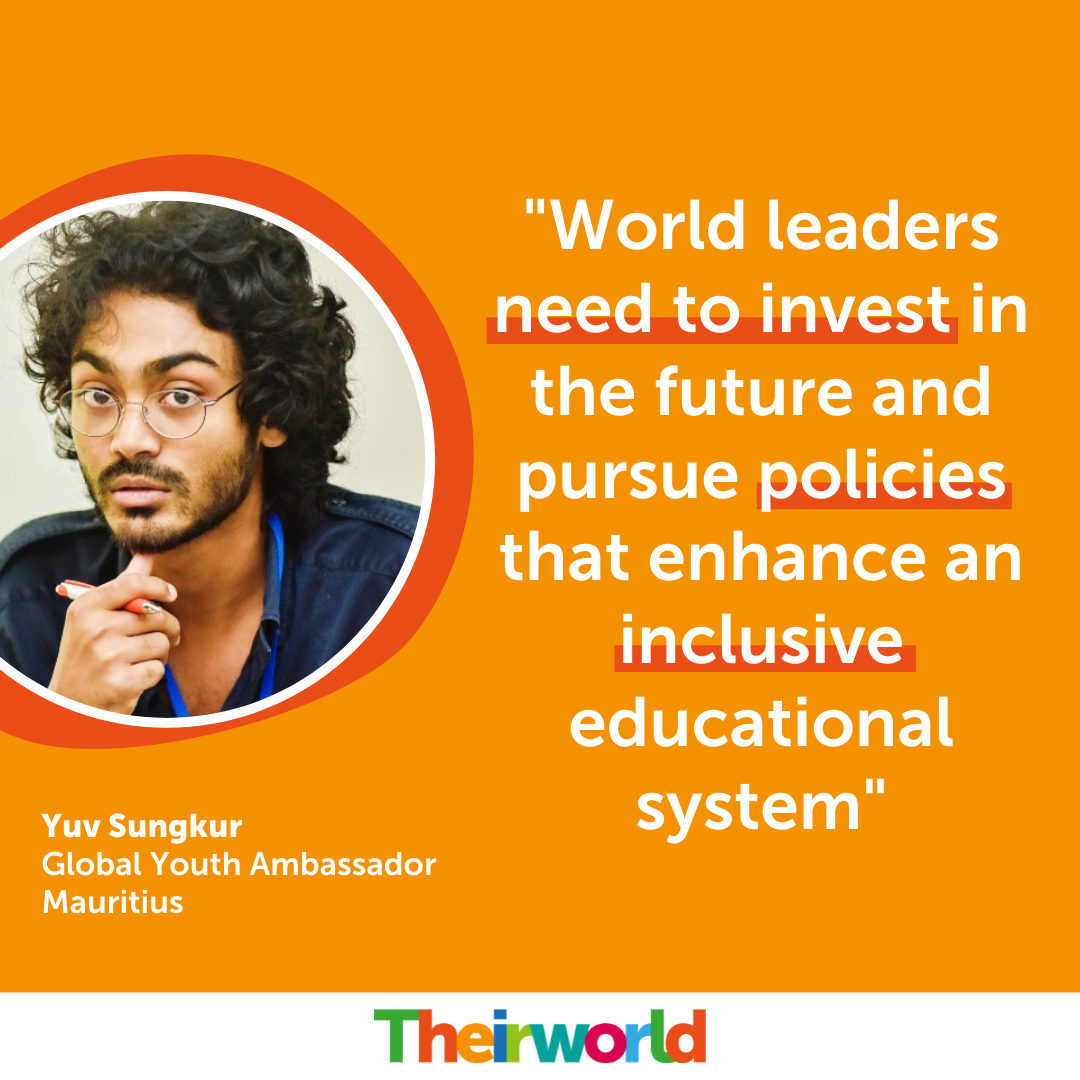
Yuv Sungkur – Global Youth Ambassador June 2021

Global Youth Ambassadors, GYA of the month
GYA Yuv Sungkur spoke to us about the work he has been doing supporting communities in his home country of Mauritius and advocating for more collaborative climate change solutions. As a passionate student, his initiative Food Water Hygiene (FWH) Mauritius seeks to support the Mauritian population, in the wake of the COVID-19 pandemic.
How did you begin your journey into activism?
I have always been interested in activism and advocacy. I am in complete admiration of the skills of powerful orators like Martin Luther King, Barack Obama and more recently, Alexandria Ocasio – Cortez. In fact, most of my books are about them! The youth have an immense power, and a unique voice to bring to the table – we share a new perspective, and we are not afraid to change the system. Today, I have the chance to put my skills and passion into action. Being an active advocate for better education with TheirWorld as a Global Youth Ambassador, and for climate change as a Country Coordinator for Mauritius with the UNFCCC’s Conference of Youth 16 (COY16) is a true honor. Being part of such an active and open-minded group of young people ready to make a change is a blessing, and I am more than excited to work with them.
Can you tell us more about your latest project and what inspired you to act?
My latest project is FWH Mauritius, which aims to support the Mauritian population living in situations of hunger, poverty, and inequality. We distribute packages containing food, water, and essential hygiene products. The pandemic left thousands of people confined in their homes with limited access to primary necessities. We created an initiative based on collaboration and human connection to help our people, and ensure that every man, woman and child have access to resources that satisfy their basic needs.
What opportunities has the pandemic provided?
In the past year and half and despite its challenges, the world demonstrated resilience by collectively adapting to a new lifestyle. Whether it was through a complete lockdown, a curfew to respect, or online work, we thought about one another and collaborated to restrain the effects of COVID-19. With the resilience we proved to have during this pandemic, we can only be positive about the future global actions we can take collectively. COVID showed that we can unite and collaborate as one to fight against a global threat – we need to use this momentum to push for further global actions, like increasing education finance or reducing greenhouse gas emissions.
On a more personal level, COVID challenged me to think outside of the box and enhance my entrepreneurial skills for the better! Through this pandemic, I saw that people are willing to help one another, and do what is best not only for them, but society in general. This thought motivated me to create an NGO based on collaboration and human connection.
As a GYA, what issues are you hoping world leaders prioritise for upcoming summits?
In the context we are living in, global health policy surrounding COVID-19 will always have to be the number one priority. They need to ensure the safety of the population, and the deceleration of the virus.
However, world leaders also need to start prioritising long-term educational investment while pursuing climate resilient policies. The threat of these issues requires international cooperation on an unprecedented scale. To fight for a climate-resilient future, sustained support from the highest levels of government and international organizations is crucial. World leaders need to invest in the future and pursue policies that enhance an inclusive educational system that promotes the mainstreaming of climate change.
More news

